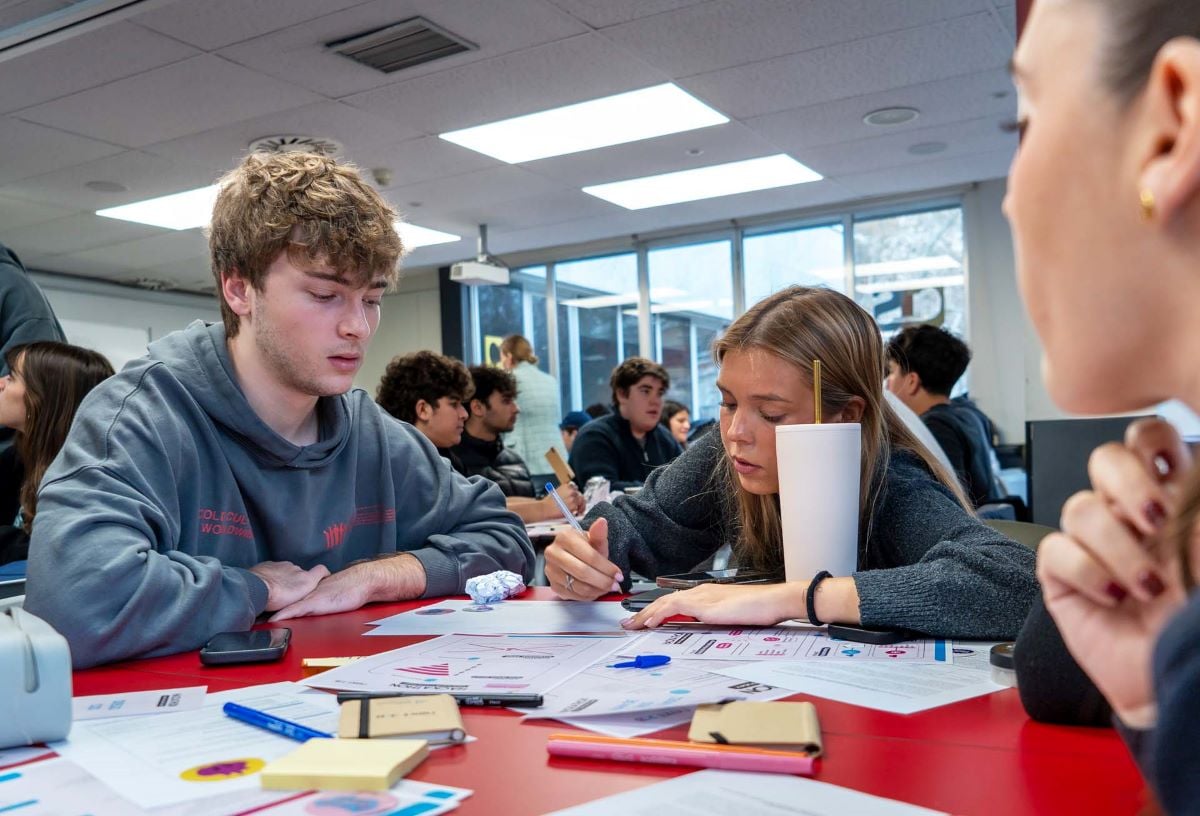You sit down to study and… you’re not sure where to start.
Should you review last week’s lecture? Work on that assignment due Friday? Or just open your notes and hope for the best?
Sound familiar?
If studying feels chaotic or overwhelming, the problem may not be so much what you study, but how you organize your time.
At CIS University, we know that successful students don’t just study hard, they study smart. And that starts with having a study schedule that’s realistic, flexible and sustainable.
Here’s how to build one that actually works (and doesn’t fall apart after the first two weeks).
Why Having a Study Schedule Is More Important Than You Think
Some students believe that they’ll just study when they have time.
But here’s the truth: that time rarely appears. And when it does, it’s often fragmented, rushed or unproductive.
The risks of relying on spontaneous study time
- You end up prioritizing urgent tasks, not important ones
- You constantly feel like you’re “behind”
- You burn out from last-minute pressure
Without a clear plan, even the most motivated students struggle to keep up.
How structure reduces stress and boosts motivation
A good study schedule isn’t rigid. It gives you structure, which in turn gives you:
- Mental clarity: you know what to do and when
- Better focus: no more jumping between random tasks
- A sense of progress: each week has purpose and direction
Why even flexible students benefit from clear routines
Whether you’re a planner by nature or tend to be more spontaneous, routines matter.
Because your brain loves predictability when it comes to focus, energy, and retention.
A well-thought-out study schedule is not a restriction—it’s a tool for freedom and peace of mind.
Steps to Build a Study Schedule That Fits Your Life
There’s no such thing as a “perfect” schedule. But there is such a thing as the right one for you.
Here’s how to create it:
1. Identify your academic goals and weekly deadlines
At CIS University, every student receives a syllabus on the first day of each class.
This document includes all the key dates of the semester: assignments, exams, presentations…
Start there. Plot out your semester and then break it down by week.
2. Understand your energy patterns
Are you sharper in the morning? More focused after lunch? Tired by 8 p.m.?
Use that self-knowledge to block your most demanding study sessions during your high-energy windows.
3. Block time for study, review, breaks, and rest
Don’t just schedule study time. Plan:
- Deep focus sessions
- Quick reviews
- Breaks between tasks
- Time off (yes, it matters!)
Without breaks, your schedule won’t last. Without review, your learning won’t stick.
Need more help with this? You can explore our time management strategies for college students to get deeper guidance.
So, what’s the takeaway here? Your study plan should fit your brain, your lifestyle and your real schedule, not a fantasy version of yourself.
Tools and Techniques to Plan Smarter, Not Harder
You don’t need a fancy system to stay organized, but a few well-chosen tools can make a huge difference.
Digital tools that help you stay on track
- Google Calendar: ideal for weekly planning and reminders
- Notion: flexible for to-do lists, notes and deadlines
- Study Bunny: a fun way to track sessions and rewards
The best tool is the one you’ll actually use.
The Pomodoro technique and other time-blocking strategies
You don’t need three hours to get things done. Often, 25 focused minutes can be more productive than a whole afternoon of distracted study.
Try the Pomodoro study technique if you struggle with focus, or experiment with 50/10 or 90/20 cycles until you find your rhythm.
How to Balance Short-Term Goals with Long-Term Planning
Use your semester overview to plan ahead,then use your weekly and daily schedule to focus on the next step. This two-level approach helps you:
- Avoid last-minute stress
- Track your progress
- Adjust without losing sight of the big picture
If you’re also looking for more tools to support your study journey, don’t miss our post on the best study apps for university students.
In short: tools don’t replace discipline, but they make it much easier to maintain your habits.
What Makes a Study Schedule Sustainable (and What Breaks It)
Anyone can create a beautiful plan on Sunday.
The question is: will you still follow it by Thursday?
Common mistakes students make
- Overplanning: trying to fit in too much
- Underestimating breaks: burning out after two days
- Copying others’ systems: instead of listening to your own needs
How to stay flexible without losing discipline
Your study schedule should adapt when needed, but not collapse completely.
Build in “buffer time” for when things take longer than expected. And don’t let a bad day ruin your whole week.
The importance of reviewing and adjusting weekly
Once a week, take 10 minutes to:
- Reflect on what worked
- Adjust what didn’t
- Re-plan with better insight
That’s how your schedule evolves with you, without losing structure.
And if you’re also managing finances and academics at the same time, check out our student budgeting tips to help you stay on top of everything.
The takeaway? A good study plan isn’t perfect. It’s sustainable. And that’s what counts.
At CIS University, We Help You Study Strategically

We know that every student is different.
That’s why we offer support that’s flexible, personalized, and designed to help you succeed both inside and outside the classroom.
Academic mentoring and planning sessions
Whether you’re struggling to organize your week or want to optimize your learning, our faculty and advisors are here to help you plan with purpose.
You’re not just given deadlines; you’re taught how to meet them.
Student support for athletes or working students
At CIS University, many students combine academics with sports or part-time work.
We provide strategies, tools and mentoring to help you build schedules that match your daily life.
You’re not expected to do it all alone.
In short: we don’t just care about what you study; we care about how you study.
Ready to study smarter (not just harder)?
Creating a study schedule that works isn’t about being perfect. It’s about being intentional.
At CIS University, you’ll find the tools, people, and environment to help you build routines that support your learning, your wellbeing, and your future.
